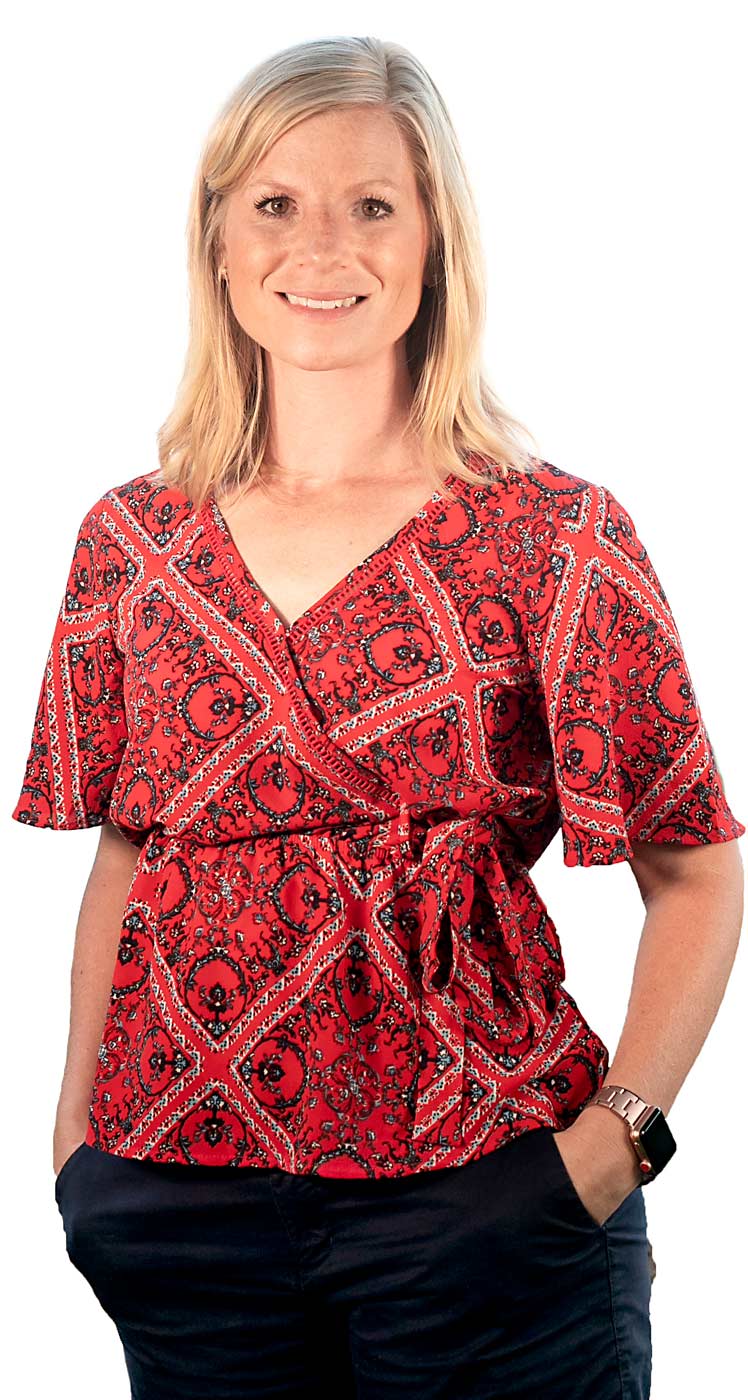family background/Beth grew up working with her grandfather, Harold Henry, on their family farm in Eden Valley, New York, and later graduated with a business degree from State University of New York at Oswego. She’s married to Robert Brown III and now works for his family’s farm.
age/34
grower/Watterport, New York
crops/Apples and berries
business/Orchard Dale Fruit Co.
How did you get your start?
Everything about growing up on a farm shaped who I am today — I love it. I think you get very unique experiences when growing up on a farm. I treasure my memories of riding along with my grandfather in his old Gator checking the fields.
One thing in agriculture that contributes to it being so special is that it’s a passion-driven industry. When you work or own your farm, you do it because it’s in your heart. It’s a career that’s more than just punching a clock. It’s a part of you. That’s part of why I’m carrying it forward in my life.
What do you do in your job now?
Right after college, I went into human resources, spending about seven years doing many different tasks in offices. I always knew I wanted to return to ag. That opportunity came up within my husband’s farm. Now I’m involved with overseeing H.R., business planning, finances and food safety.
What kind of challenges does your farm face?
In New York state, growers like us are facing the challenge of having a voice on recent farmworker labor bills. Our state is facing overtime requirements on anyone working over 60 hours a week, with a mandatory day of rest.
As many people know, ag is a heavily regulated industry, but this recent state bill is going to be a challenge for all of us. We’re going to have to reassess how we operate the farm and the number of hours that all of us work.
What challenges have you taken on?
I face challenges on a daily basis, whether it be food-safety-related or writing our H-2A requests. On the farm, I look for ways to streamline processes for our food safety program, to make sure everyone is trained, understands the risks and knows what needs to be done.
Food safety regulations and the associated audits are ever-changing. It’s important that I stay on top of the necessary paperwork and training. Regarding H-2A, I participated in the Young Apple Leaders program to have a voice regarding reforms. I believe we have to find a solution that works for everyone.
What areas of the industry do you want to help improve?
I’d like to see greater uniformity across the different food safety audits. Also, a major challenge is working in an industry that competes against imported food.
Other countries are oftentimes not held to the same food safety standards that U.S. growers follow. I believe reforming that regulation imbalance is one thing regarding food safety that needs to be fixed.
Other young growers can get involved with issues like this by participating in politics and getting your voice heard. I would encourage growers to pursue different leadership opportunities and programs.
Why are you a grower?
I thrive on variety in my work — I’m not a person who can sit at a desk and do the same thing every day. Something that I’ve always loved since coming back to the farm is that I’m thrown curveballs every day.
I take great satisfaction from providing solutions for our employees if they have any issues or questions. Working with food safety regulations can be burdensome, but I believe in its importance and creating a successful program.
What would you tell young growers about the industry?
This industry is changing, and it has its challenges, but it is extremely satisfying. It’s fun.
Seeing more young women involved in agriculture is one of the major changes. Females have taken a stronger role and I feel that trend is important. I have two daughters who I hope will share this interest and pursue an opportunity down the road if it’s there
– by TJ Mullinax







Leave A Comment